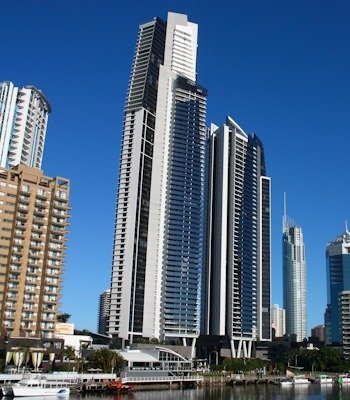We’re often asked about what will give the better outcome – investing in residential property or, investing in commercial property. And, with no shortage of factors that play into advice about how, when and where to invest in the property market, this simple question can be tricky to answer. Why? Let’s take a closer look at the unique advantages (and challenges!) that need to be weighed up when choosing between residential or commercial property investments.
Understanding what is classified as commercial real estate is the starting point for deciding whether this or residential real estate, is the right investment option for you.
A wide range of properties such as office buildings, retail spaces, industrial warehouses and hospitality venues are classified as ‘commercial’. Investing in these is generally done as a business venture due to the potential for longer leases and stronger returns.
On the other hand, residential real estate refers to properties designed for living purposes, such as single-family homes, apartments, and condominiums. Residential properties are often considered a more stable and reliable investment option, particularly for those new to real estate investment.
However, residential properties do come with their own set of challenges. Rental yields are typically lower compared to commercial properties, and the turnover of tenants can result in periods of vacancy. Added to this is that managing residential properties can be more hands-on, involving tasks such as maintenance and managing tenant relations.
This is where the appeal of commercial properties comes through. A typical commercial property requires less owner involvement than a residential property. Because businesses leasing commercial spaces are usually responsible for maintenance and property improvements, there’s less of a property management burden.
Commercial property also makes good financial sense. Businesses typically sign longer leases than residential tenants, providing a stable income stream for investors. Most commercial leases often include a provision for regular rent increases, providing guaranteed income growth.
But, commercial real estate isn’t a sure-fire return on your investment. A downturn in the broader economic market could impact business tenants, resulting in vacancies and potential income loss. The commercial property market is also influenced by local economic factors, so it’s important to research and understand the economic environment of where you’re wanting to invest.
Residential properties on the other hand remain relatively stable, even when the economy slows down. The reason for this is simple – people will always need a place to live. This consistency of demand is appealing to investors who prefer to take a lower-risk approach.
And, how much risk the investor is willing to take, is ultimately where the decision between commercial and residential property investment is made. Investors seeking higher rental yields and are willing to take on more risk might find commercial properties appealing. On the other hand, those looking for a more stable and straightforward investment (with potentially lower returns) may lean towards residential properties.
Our advice is to keep an open mind and consider a mix of both residential and commercial investment properties. Over time, this will build a portfolio that withstands economic fluctuations and market dynamics. Both property types offer unique opportunities and challenges, and investors must carefully assess their financial goals and risk tolerance before deciding which is right for them. If Simply Property can help guide your residential and commercial investment decisions, please get in touch for more information.







